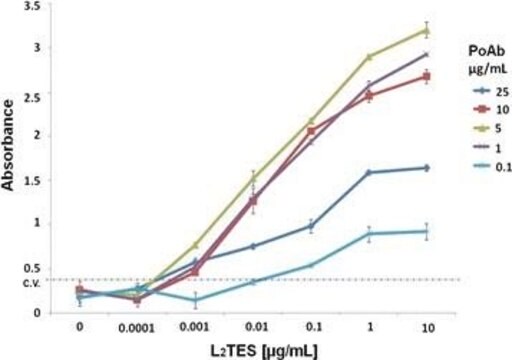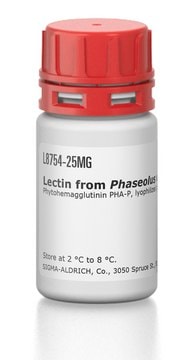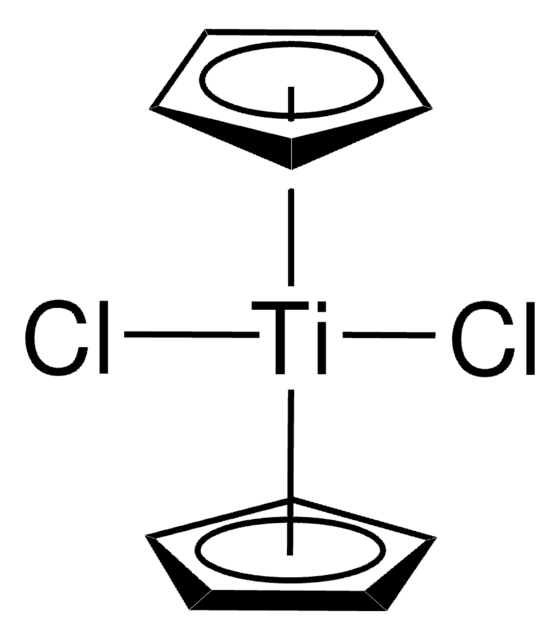05-1530-M
Anti-Importin beta-1 Antibody, clone 3H14
clone 3H14, from mouse
Sinónimos:
Karyopherin subunit beta-1, Nuclear factor P97, importin 1, importin 90, importin beta-1 subunit, karyopherin (importin) beta 1, karyopherin beta 1
About This Item
Productos recomendados
origen biológico
mouse
Nivel de calidad
forma del anticuerpo
purified immunoglobulin
tipo de anticuerpo
primary antibodies
clon
3H14, monoclonal
reactividad de especies
human
técnicas
immunocytochemistry: suitable
western blot: suitable
isotipo
IgG1κ
Nº de acceso NCBI
Nº de acceso UniProt
modificación del objetivo postraduccional
unmodified
Información sobre el gen
human ... KPNB1(3837)
Descripción general
Import of macromolecules containing a NLS requires a heterodimer of importin alpha and beta subunits also called as karyopherins. Importin alpha binds the cytoplasmic NLS-containing protein and importin beta docks the complex at the cytoplasmic side of the nuclear pore complex. Movement through the nuclear pore is mediated by the small GTP binding protein Ran via an energy requiring mechanism. Using nucleotide triphosphates and Ran, the nuclear transport complex moves into the nuclear pore and the importin subunits dissociate. Importin alpha and its passenger protein enter the nucleoplasm while importin beta remains at the pore.
Especificidad
Inmunógeno
Aplicación
Epigenetics & Nuclear Function
RNA Metabolism & Binding Proteins
Calidad
Western Blot Analysis: 0.5 µg/ml of this antibody detected Importin beta-1 on 10 µg of HeLa cell lysate.
Descripción de destino
Forma física
Almacenamiento y estabilidad
Nota de análisis
HeLa cell lysate
Otras notas
Cláusula de descargo de responsabilidad
¿No encuentra el producto adecuado?
Pruebe nuestro Herramienta de selección de productos.
Código de clase de almacenamiento
12 - Non Combustible Liquids
Clase de riesgo para el agua (WGK)
WGK 1
Punto de inflamabilidad (°F)
Not applicable
Punto de inflamabilidad (°C)
Not applicable
Certificados de análisis (COA)
Busque Certificados de análisis (COA) introduciendo el número de lote del producto. Los números de lote se encuentran en la etiqueta del producto después de las palabras «Lot» o «Batch»
¿Ya tiene este producto?
Encuentre la documentación para los productos que ha comprado recientemente en la Biblioteca de documentos.
Nuestro equipo de científicos tiene experiencia en todas las áreas de investigación: Ciencias de la vida, Ciencia de los materiales, Síntesis química, Cromatografía, Analítica y muchas otras.
Póngase en contacto con el Servicio técnico




